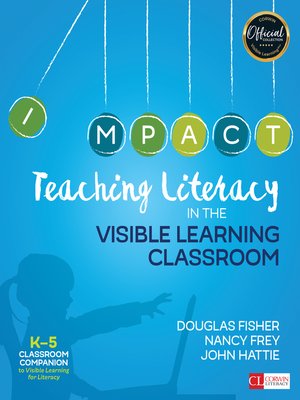Teaching Literacy in the Visible Learning Classroom, Grades K-5
ebook ∣ Corwin Literacy
By Douglas Fisher

Sign up to save your library
With an OverDrive account, you can save your favorite libraries for at-a-glance information about availability. Find out more about OverDrive accounts.
Find this title in Libby, the library reading app by OverDrive.



Search for a digital library with this title
Title found at these libraries:
| Library Name | Distance |
|---|---|
| Loading... |
It could happen at 10:10 a.m. in the midst of interactive writing, at 2:30, when listening to readers, or even after class, when planning a lesson. The question arises: How do I influence students' learning–what's going to generate that light bulb Aha-moment of understanding?
In this sequel to their megawatt best seller Visible Learning for Literacy, Douglas Fisher, Nancy Frey, and John Hattie help you answer that question by sharing structures and tools for effective literacy instruction that have high-impact on learning—and insights on which stage of learning they have that high impact.
With their expert lessons, video clips, and online resources, you can deliver sustained, comprehensive experiences in phonics, guided reading, interactive writing, content-area discussions—in virtually all you teach:
With Teaching Literacy in the Visible Learning Classroom, take your students from surface to deep to transfer learning. It's all about using the most effective practices—and knowing WHEN those practices are best leveraged to maximize student learning.







